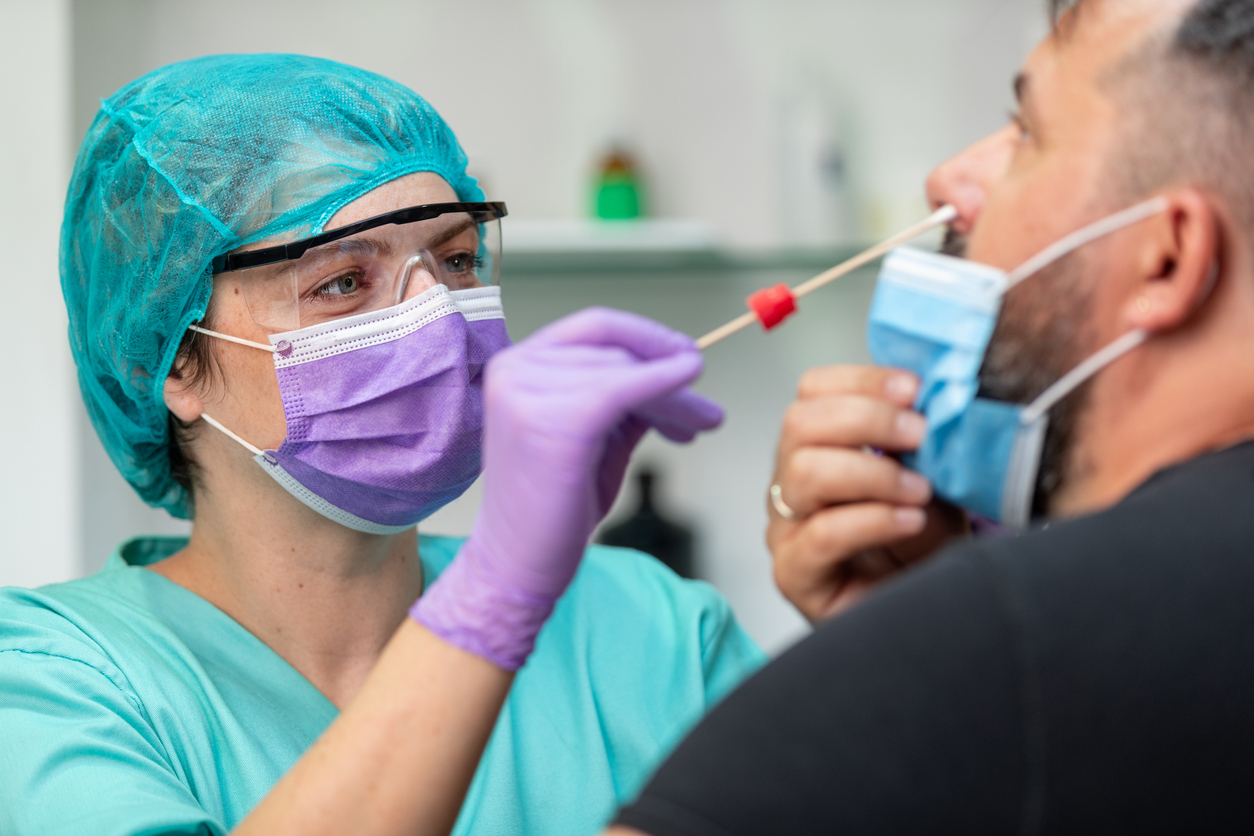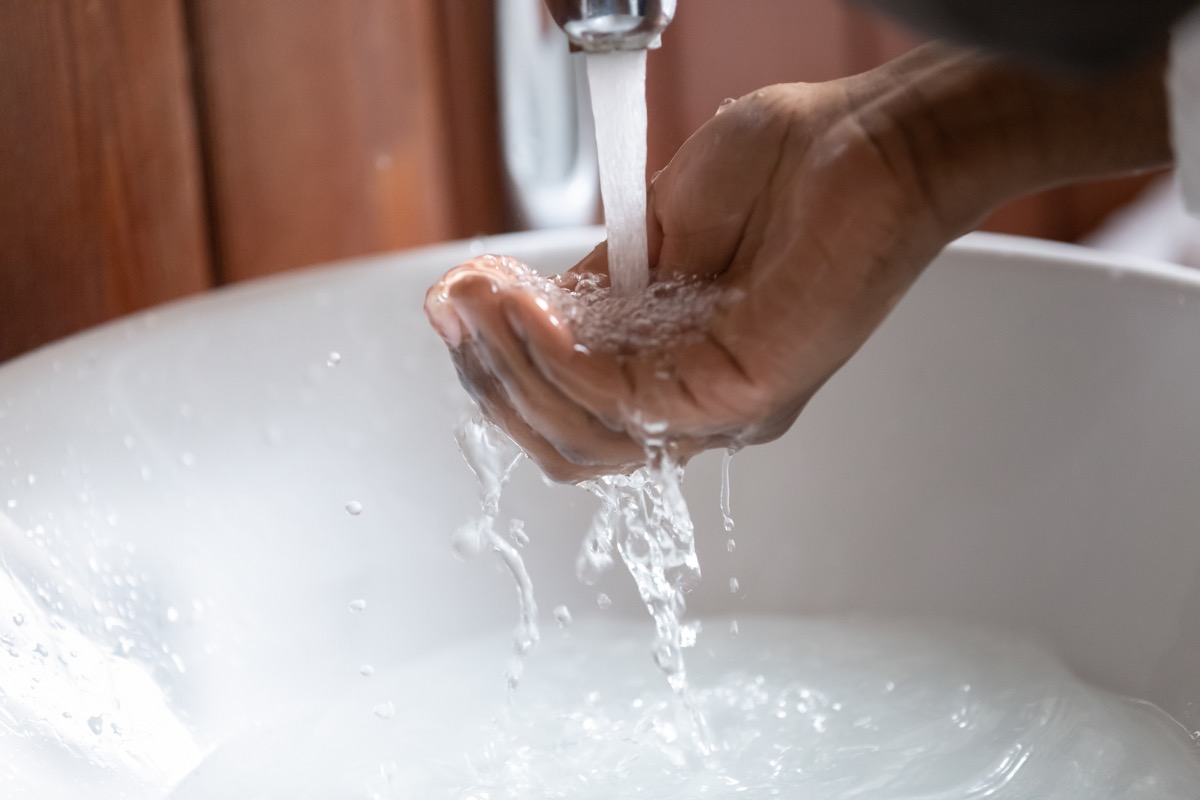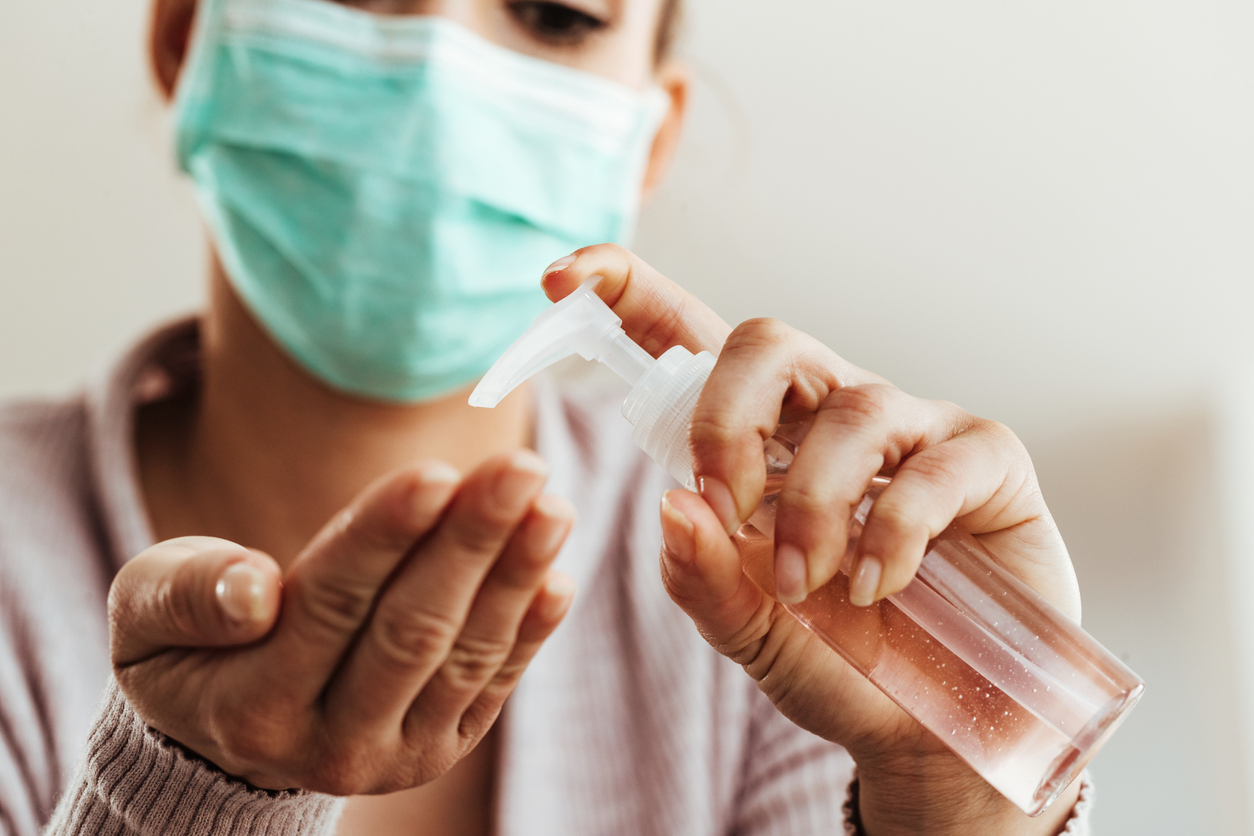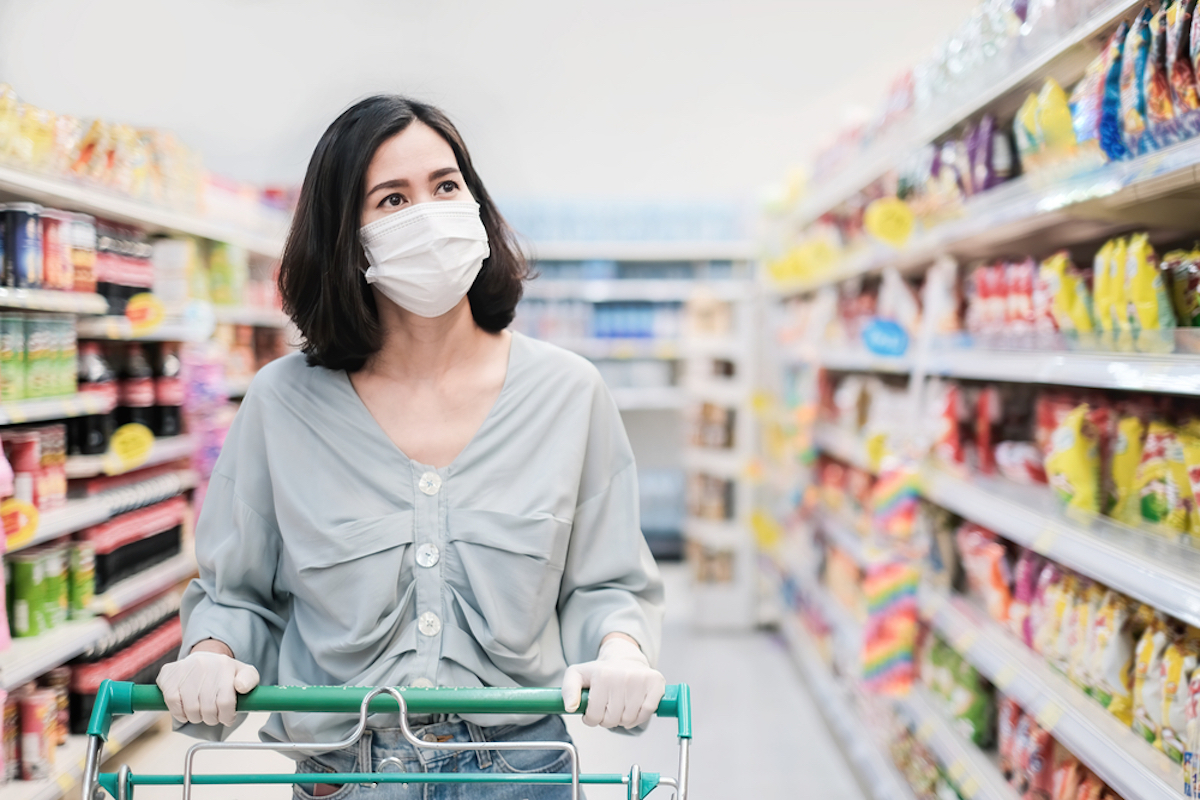The new CDC study reveals that a correctional officer who was exposed on multiple short occasions to coronavirus-positive members of his workplace’s incarcerated population subsequently tested positive for the virus. The correctional officer in question had 22 brief exposures with infected individuals, each lasting between 10 and 60 seconds, adding up to a total of 17 nonconsecutive minutes in their presence over a 24-hour period. While the infected individuals were not always wearing masks for these encounters, the officer wore both a cloth mask and goggles in every instance. The MMWR study’s findings show that the correctional officer did spend more than 15 minutes in the presence of individuals with COVID in total, but the idea that cumulative exposures to individuals with coronavirus can spread the virus, rather than just individual prolonged exposures, has serious implications for the activities many people consider “safe.” The CDC says that the duration of exposure is just one element to consider when defining a “close contact” and assessing individual risk in the future. The definition should now include whether or not the infected individual is symptomatic or asymptomatic, the ventilation and number of people in a given location, and whether or not the infected individual was engaged in an activity likely to contribute to respiratory aerosols, like exercise or even speaking loudly. While this means that people should be more cautious about their cumulative exposure to individuals who have confirmed or suspected cases of coronavirus, that’s not the only way you can protect yourself. Read on to discover more tips from the CDC that can help keep you safe. And if you want to stay safe, These 2 Everyday Items Can Kill COVID in 2 Minutes, New Study Says. With so many asymptomatic cases of coronavirus, it’s impossible to know if you’re infected unless you’ve been recently tested. That’s why the CDC recommends washing your hands with soap and water for at least 20 seconds any time you leave the house. If soap and water aren’t available, a hand sanitizer with at least 60 percent alcohol can do the trick. You never know if you may have come into contact with aerosolized coronavirus droplets when you’re out and about, which is why it’s so important to wash your hands or use hand sanitizer upon arriving at your destination as well, according to the CDC. Wearing a mask that covers both your nose and your mouth when in public is key to limiting the spread of coronavirus. The CDC recommends wearing your mask any time you will be around people you don’t live with, including gatherings, on public transportation, at events, and in stores. It’s also important to make sure you’ve washed or sanitized your hands prior to putting your mask on, and to wash or sanitize them if you touch your mask, as well. And for more coronavirus news delivered to your inbox, sign up for our daily newsletter. If you want to protect yourself and others in public, maintaining your distance from anyone you don’t share a household with is crucial. The CDC recommends staying at least six feet from anyone you don’t live with—but even if you’re staying far apart, wearing a mask is still essential. Suspect you might be ill? If You Can’t Taste These 2 Things, You May Have COVID.ae0fcc31ae342fd3a1346ebb1f342fcb Though some cases of coronavirus are asymptomatic, staying home if you’re feeling under the weather is an easy way to prevent the spread of coronavirus and other illnesses. The CDC recommends staying home for 14 days if you have had contact with someone who has COVID-19, even if you’re feeling healthy. If you haven’t had known contact with someone with coronavirus, but you’re experiencing symptoms of illness, the CDC recommends staying home, avoiding contact with others, and disinfecting high-touch areas as much as possible until you can get tested.





